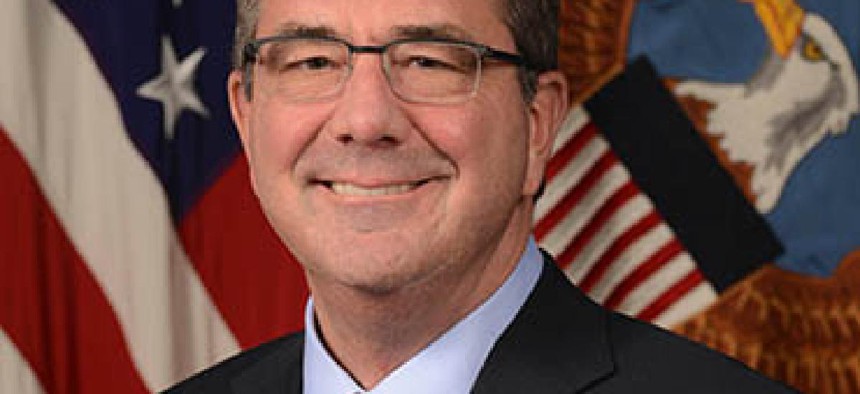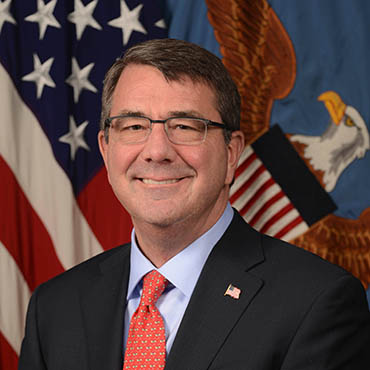Carter stresses reform and innovation in exit memo

In his exit memo, the secretary of defense outlines current threats and priorities with a strong emphasis on the need for acquisition reform and innovation.

In an exit memo, outgoing Pentagon chief Ash Carter looked to his successor to continue acquisition and innovation upgrades.
In an exit memo that runs to nearly 10,000 words, Secretary of Defense Ash Carter outlines five major strategic challenges confronting the Department of Defense and the new administration.
In addition to strategic and tactical issues, Carter dwells at great length on acquisition reform and innovation -- an area of intense focus for Carter during his career in the DOD, and especially in the last year of his tenure as secretary.
"In order to meet the urgent demands of ongoing conflicts, DOD has focused on increased agility within the acquisition system," Carter wrote.
The outgoing secretary ran through many of the innovation initiatives he championed, going back to his time as under secretary for acquisition, technology and logistics, including rapid acquisition organizations.
"These are collectively beginning to pay dividends to the warfighter," he wrote.
Carter touted Better Buying Power initiatives, the 2009 Weapons System Acquisition Reform Act of 2009 as well as more recent programs such as the Defense Digital Service and the Defense Innovation Unit Experimental, "which identifies and does business with companies outside the traditional defense orbit," he stated.
Carter emphasized the need to continue to partner with industry to "help find innovative solutions for some of our most challenging problems."
In addition to acquisition and innovation, Carter stressed the continuing need for DOD to develop and expand its cyber capabilities.
Carter also touted increases in funding for DOD cyber and programs, such as "Hack the Pentagon" and DOD's recent vulnerability disclosure program designed to incentivize hackers to safely find and disclose vulnerabilities in public DOD sites.
"Given the increasing severity and sophistication of the threats we see in cyberspace, I hope that the next administration will continue these and other efforts to strengthen defensive cyber capabilities," he wrote.
Teri Takai, former DOD CIO, and a self-proclaimed fan of the outgoing secretary, told FCW that Carter was the right man at the right time for a department in need of significant reform. She said the work Carter has done in the last year on acquisition reform and innovation has been extremely important.
"I think it was a little bit late in coming, to tell you the truth," she said. "I think the department could have focused on innovation a little bit earlier.
"The challenge for the next administration is going to be to integrate these innovation groups with the mainstream" acquisition offices in the different services, she said. "There's always a danger that if you start up separate innovation organizations, that they'll end up being kind of just whiz kid sandbox kinds of things that don't necessarily make it into the mainstream."
Takai also praised Carter's efforts through programs like DIUx to increase smaller buys from new and innovative companies that had previously not been in the DOD orbit.
The 2017 National Defense Authorization Act splits of the office of Acquisition, Technology and Logistics into separate offices of acquisition and sustainment and research and engineering, each with its own under secretary.
Carter and current AT&L Under Secretary Frank Kendell opposed that move, but Takai said she believes that split makes sense given the size of the AT&L portfolio. She sympathizes with the department's opposition to congressional "meddling," but she said despite the dangers of innovation and acquisition being siloed, the change is necessary.
Innovation initiatives and programs will survive in the new administration because they are needed, Takai said. "Whether or not they will have the same form or whether or not they will have the same organizational structures, I think very much remains to be seen," she added.
What also remains to be seen, she said, is how Congress and the DOD interact going forward. While she praised a number of Carter's reform efforts, she said the DOD can only do so much on its own and "real true reform is going to require a joint effort between DOD and Congress."
In the 2017 NDAA, Congress put restrictions on DOD's ability to spend funds on the DIUx program until it provides a report justifying the efficacy of the initiative. The NDAA also canceled the plans to merge the CIO and deputy chief management officer positions into a joint position.
Takai supports the latter decision, but she said the subject is far from settled. She expects more "mucking" by Congress on the role of the CIO as well as other DOD reforms.
Carter said as much in swipe at Congress in his valediction. "Every dollar Congress denies us in reform is a dollar we can't invest in security we need to deter and defend against today's and tomorrow's threats."


